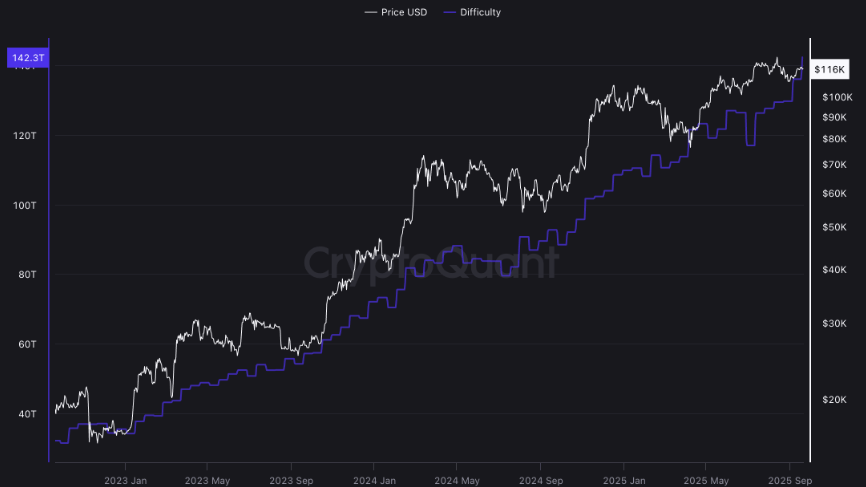Bitcoin mining difficulty has reached a new record.

On Friday, Bitcoin mining difficulty, a metric that measures the relative difficulty of adding new blocks to the ledger, reached a new all-time high of 142,3 trillion.
In August and September, the indicator consistently reached new record levels due to the influx of new computing power.
According to CryptoQuant, hashrate Bitcoin’s hashrate, the average total computing power that secures the decentralized protocol, also reached a historic high of more than 1,1 trillion hashes per second on Friday.

Rising mining difficulty and the constant need for energy-intensive high-performance computing power to secure the network are making competition between individual miners and corporations more difficult, raising concerns that Bitcoin mining is becoming increasingly centralized.
Small miners and even public companies face increasing competition from governments that have access to free energy resources, as well as energy infrastructure providers that can vertically integrate Bitcoin mining into their business processes.
In May, the Pakistani government announced plans to allocate 2000 megawatts of excess power for Bitcoin mining as part of the country’s transition to regulating cryptocurrencies and digital assets. And electricity providers in the US state of Texas are integrating Bitcoin mining into their infrastructure to balance grid loads in collaboration with the Electric Reliability Council of Texas.








